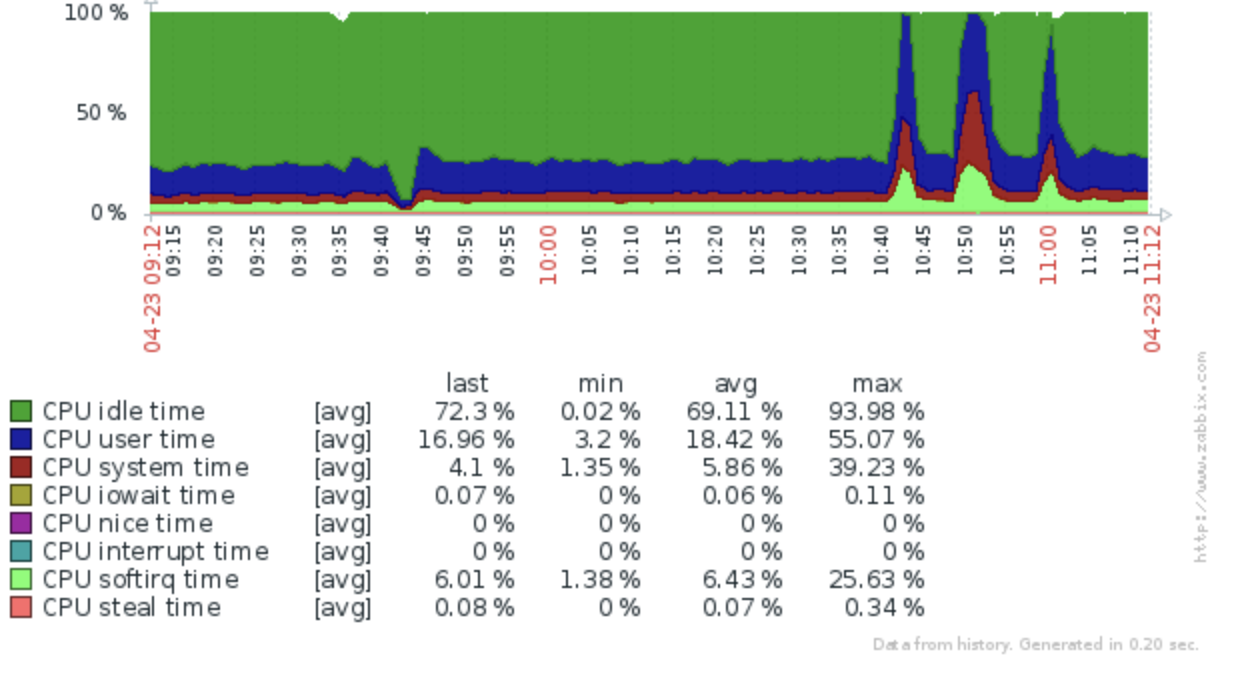Answer the question
In order to leave comments, you need to log in
What is softirq time?
Ubuntu 18, Docker, Nginx.
Nginx goes as a proxy to other servers, wrapped in docker. I know that docker-proxy slows down, but until I transferred to the host, there were no problems before. Traffic has not grown significantly.
web:
image: "nginx:1.19"
command: ["/bin/bash", "/code/run.sh"]
restart: always
ports:
- "80:80"
- "443:443"
volumes:
- /var/log/nginx:/var/log/nginx
Answer the question
In order to leave comments, you need to log in
I will not answer the question, but to the point. :)
Peaks are not clear where they came fromNote that softirq time peaks correspond to system time peaks, which in turn correspond to user time peaks.
Soft IRQs are software interrupts, usually corresponding to interrupts from software timers, context switches, I/O interrupts, and system primitives. They are generated by the kernel and processed by it.
Hard IRQs are hardware interrupts that usually correspond to requests for processing from specific pieces of iron and devices, including from devices in the CPU (processor). They are generated by peripherals and processed in drivers. The driver, in the critical section, can mask some interrupt lines to execute critical sections of code.
NMI IRQ - a separate type of hardware interrupts, the so-called non- maskableinterrupts usually correspond to CPU requests in critical cases - handling hardware errors, memory out of bounds, errors in arithmetic, memory, processor instructions, etc.
If you need to go deeper, I can tell.
Didn't find what you were looking for?
Ask your questionAsk a Question
731 491 924 answers to any question